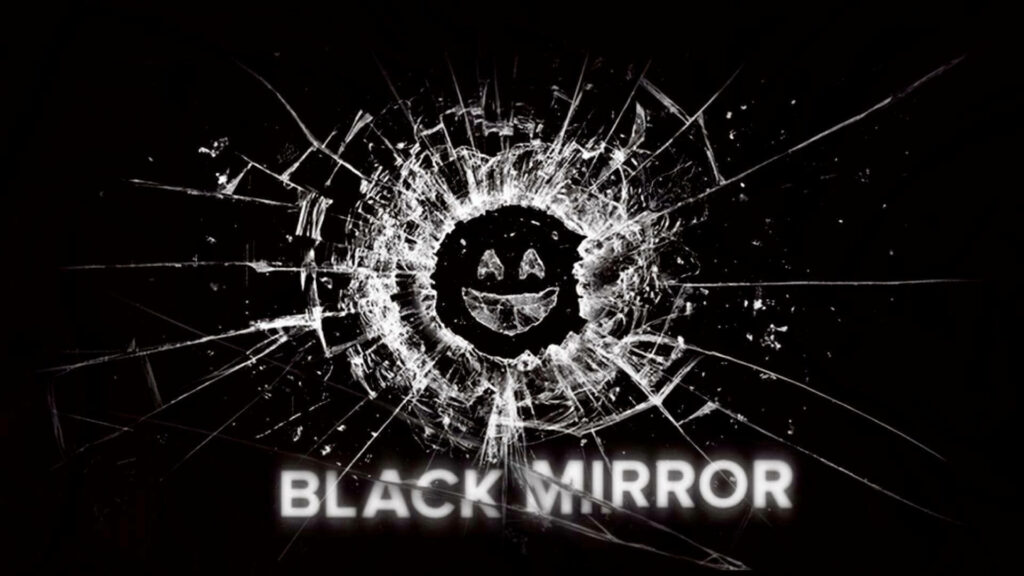
Now, if you haven’t heard of Black Mirror, where have you been? And secondly, you’re in for a treat. Black Mirror is a British anthology series like the Twilight Zone of the digital age. Each episode is a standalone story, so you don’t have to worry about catching up on multiple seasons. And guess what? You can find all Black Mirror episodes on Netflix! 🍿
But here’s the catch – with so many episodes to choose from, each with its own twisted, thought-provoking tale, it can be overwhelming to decide where to start. That’s where this blog post comes in! We’ve taken on the Herculean task of watching and ranking every episode from all six seasons. Yes, you heard that right. Every. Single. Episode.
Whether you’re a Black Mirror newbie or a seasoned veteran looking to revisit some episodes, this post is your ultimate guide. We’ll laugh, cry, and probably have an existential crisis or two along the way. So grab your favourite snacks, dim the lights, and dive into the dark and mesmerising world of Black Mirror.
Stay tuned, and let’s get this show on the road! 🎥
Alright, before we dive into the nitty-gritty rankings, let’s take a moment to appreciate the sheer brilliance that is Black Mirror. Picture this: it’s 2011, and a new show hits the airwaves. Little did we know that this show would become a cultural juggernaut.
Black Mirror is the brainchild of the wickedly talented Charlie Brooker. He’s like the Willy Wonka of dark, twisted television. Brooker, a former video game journalist, uses Black Mirror to explore the dark side of life and technology. It’s like he’s holding up a (black) mirror to society, showing us our world’s grim, often horrifying reflections.
One of the most extraordinary things about Black Mirror is that it’s an anthology series. What does that mean? Well, each episode is its own self-contained story. There’s no need to watch them in order; each has its cast, setting, and plot. It’s like getting a brand new mini-movie with every episode. Talk about the value of your Netflix subscription!
Black Mirror didn’t just make waves; it created tsunamis in pop culture. From the Emmy-winning “San Junipero” to the groundbreaking interactive episode “Bandersnatch”, Black Mirror has consistently pushed the boundaries of what television can be. It’s inspired countless debates, think pieces, and even real-world tech innovations (some of which are scary, to be honest).
As of now, Black Mirror has graced us with six mind-bending seasons. That’s a total of 27 episodes and a movie-length interactive episode. Each season explores different themes, from social media’s dark underbelly to futuristic tech’s moral dilemmas. It’s like a roller coaster ride through a haunted house – thrilling, terrifying, and you never know what’s around the next corner.
Now that we’ve set the stage let’s get to the part you’ve all been waiting for – the rankings!
Before we dive into the rankings, let’s talk about how I’ve ranked these episodes. How do you even begin to compare the apples and oranges of Black Mirror? It’s like choosing between pizza and ice cream – both are amazing in their own right! But I’ve put on my thinking cap and developed some criteria to make sense of everything.
The backbone of any great Black Mirror episode is its storytelling. How engaging is the plot? Does it keep you on the edge of your seat? Does it make you think? A great episode should feel like a punch in the gut – in a good way!
Black Mirror is known for its original, out-of-the-box concepts. The more an episode brings something new to the table, the higher it ranks. We’re talking twists and turns that make your jaw drop.
The best Black Mirror episodes are the ones that leave you staring at the screen long after the credits roll. Whether it’s tears, joy, or existential dread, the emotional impact is a significant factor in these rankings.
I’ve also taken into account how viewers have rated the episodes. After all, the people have spoken! But remember, just because an episode has high ratings doesn’t mean it’s everyone’s cup of tea.
How does the episode resonate with real-world issues? The best Black Mirror episodes often have eerie parallels with our society. It’s like they’re predicting the future (and not always in a good way).
Lastly, the “Wow” factor. You know, that moment when an episode hits differently. It’s hard to describe, but you know it when you see it.
Now that we’ve got our criteria laid out let’s get down to business. Grab your popcorn because things are about to get wild!
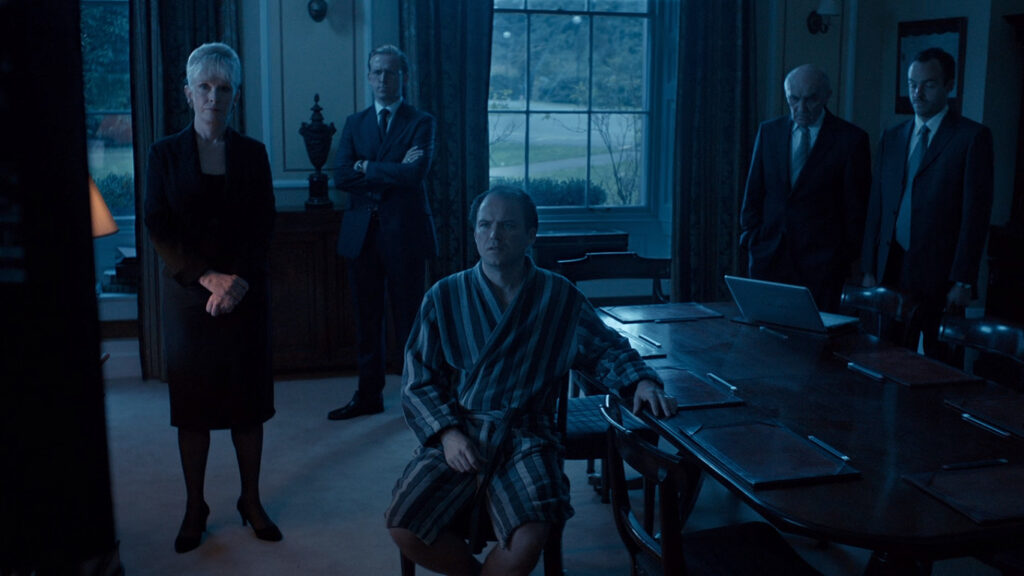
Synopsis:
The UK Prime Minister, Michael Callow, faces a bizarre and morally questionable dilemma when a beloved member of the Royal Family is kidnapped. The kidnapper demands that the Prime Minister perform an unspeakable act live on national television to secure her release.
Ranking:
3/3 in Season 1
Why:
While “The National Anthem” is the episode that introduced us to the dark and twisted world of Black Mirror, it’s ranked lower due to its shock value and controversial plot. However, it does set the tone for the series by showing how technology and media can manipulate public opinion and political decisions.
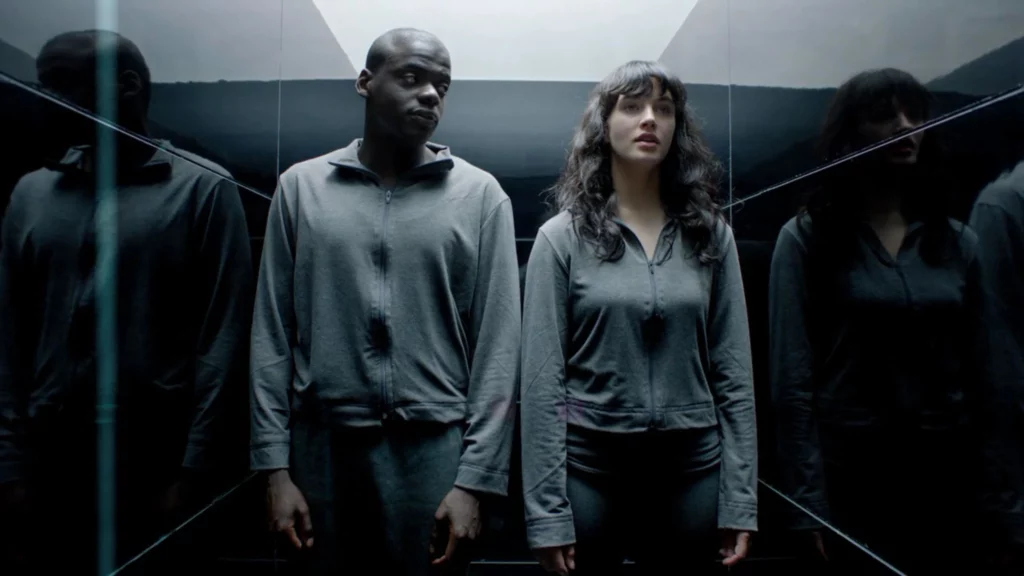
Synopsis:
In a dystopian future, citizens live in a facility where they must cycle on exercise bikes to earn a currency called “Merits.” Bing, who has inherited many Merits, meets Abi and is enthralled by her singing. He decides to help her enter a talent show, but things turn dark.
Ranking:
2/3 in Season 1
Why:
“Fifteen Million Merits” is a haunting critique of reality TV, consumer culture, and the dehumanisation caused by technology. The episode is visually striking and features compelling performances by Daniel Kaluuya and Jessica Brown Findlay. It’s a poignant and emotional story that leaves viewers reflecting on society’s values.
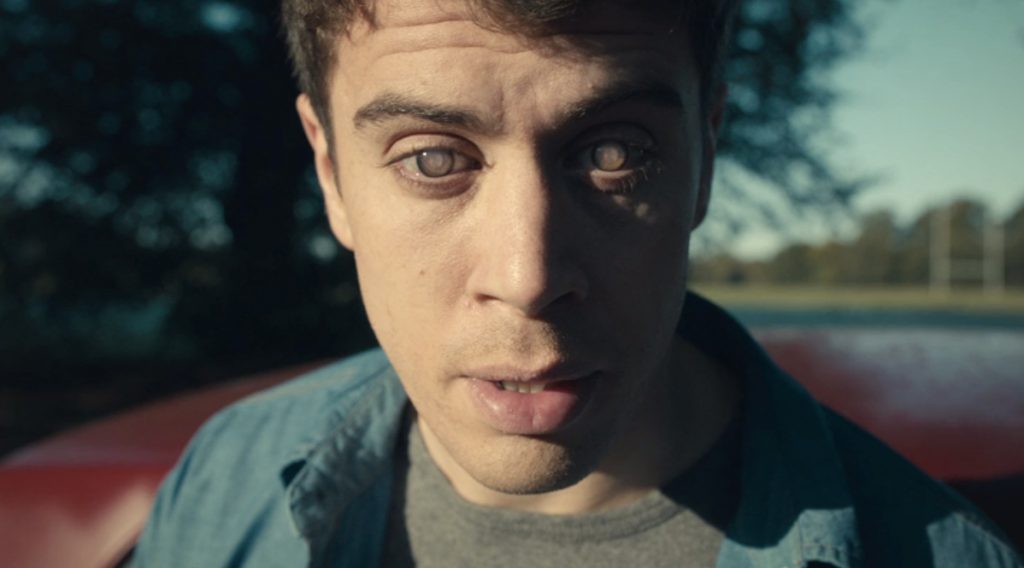
Synopsis:
In a near-future world, people have implants that record everything they see and hear, allowing them to replay their memories at any time. Liam, a lawyer, becomes increasingly suspicious of his wife’s behaviour and begins to use his implant to investigate, leading to devastating consequences.
Ranking:
1/3 in Season 1
Why: “The Entire History of You” is a chilling exploration of memory, relationships, and the dark side of technology. The episode raises questions about privacy, trust, and the human psyche. The concept is original, and the storytelling is tight and focused. The intense emotional impact makes it the standout episode of Season 1.

Synopsis:
This special episode features three interwoven stories. Matt and Joe are stationed at a remote outpost in the snow. As they share their stories, we see tales of technology twisted in dark ways, culminating in a chilling conclusion.
Ranking:
1/4 in Season 2
Why:
“White Christmas” is a masterclass in storytelling, weaving multiple narratives into a cohesive and haunting whole. With its dark themes, brilliant performances, especially by Jon Hamm, and a twist ending, this episode stands out and takes the top spot in Season 2.

Synopsis:
After her boyfriend Ash dies in a car accident, Martha discovers a service that lets her communicate with an AI imitating Ash. As she becomes more attached, she decides to upgrade to a new level of service, which leads to unexpected consequences.
Ranking:
2/4 in Season 2
Why:
“Be Right Back” is a profoundly emotional episode that explores grief, love, and the human need for connection. The performances by Hayley Atwell and Domhnall Gleeson are outstanding. The episode is ranked second for its touching narrative and thought-provoking take on the use of technology in dealing with loss.
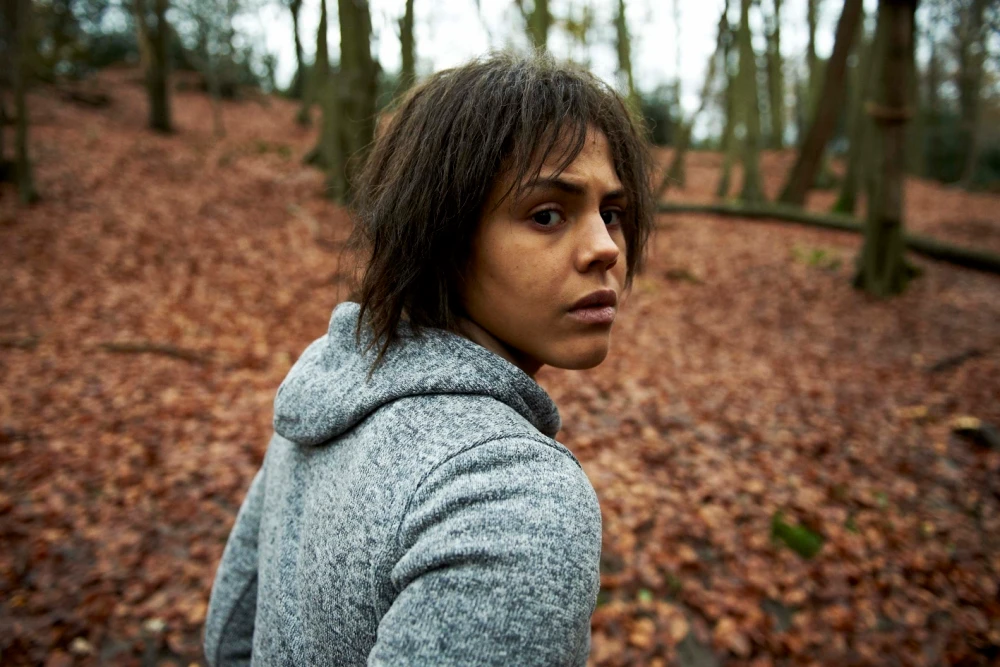
Synopsis:
A woman wakes up with amnesia in a world where most of the population has been affected by a signal that turned them into dumb witnesses. She finds herself on the run from people hunting her, only to discover a twist that changes everything.
Ranking: 3/4 in Season 2
Why: “White Bear” is a thrilling and intense episode with a shocking twist. It’s a commentary on justice, desensitisation, and the voyeuristic nature of society. While the episode is gripping, it has relentless intensity, and dark themes place it in the middle of the pack for Season 2.
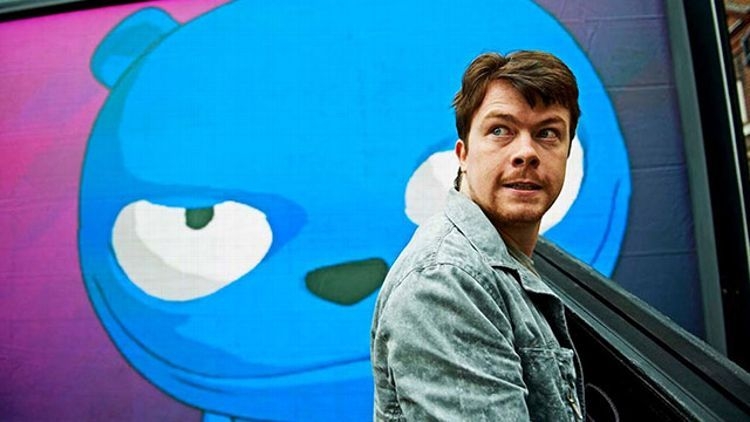
Synopsis:
A failed comedian controls a cartoon bear named Waldo, who runs for political office. As Waldo’s popularity rises, the lines between entertainment and politics blur.
Ranking:
4/4 in Season 2
Why:
“The Waldo Moment” is a political satire exploring entertainment’s political role. While the concept is interesting, especially in the context of modern politics, the episode is often considered one of the weaker entries in the Black Mirror series due to its less engaging execution.
Season 2 of Black Mirror continues to be challenging and entertaining with dark and thought-provoking stories. “White Christmas” is often regarded as one of the best episodes of the entire series, while “Be Right Back” is praised for its emotional depth.
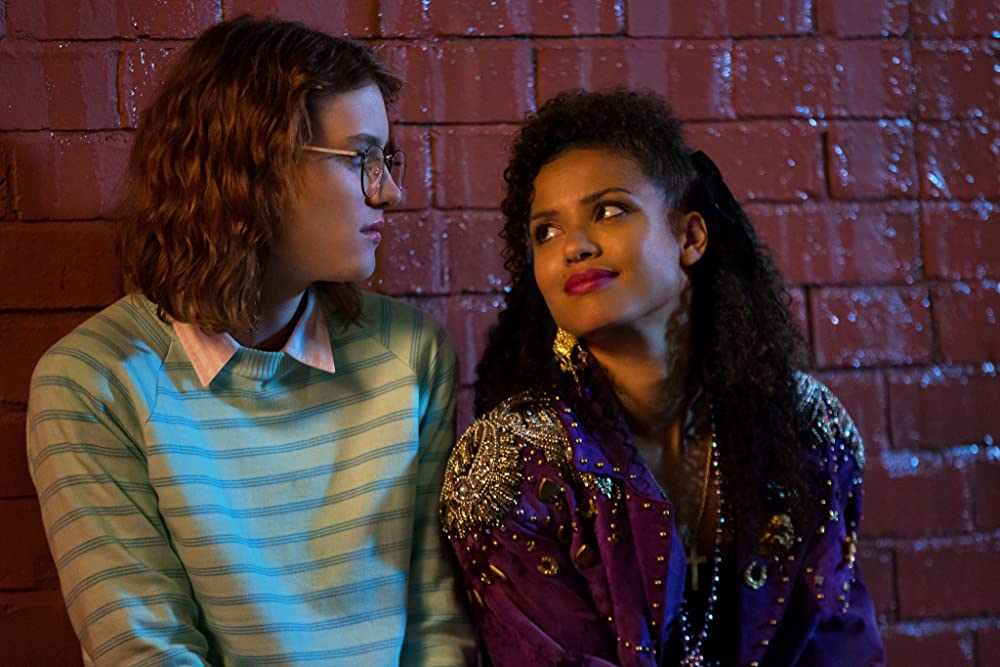
Synopsis:
In a seaside town known as San Junipero, Yorkie, a shy young woman, meets outgoing Kelly, and they form a powerful bond. However, San Junipero is different from what it seems.
Ranking:
1/6 in Season 3
Why:
“San Junipero” is considered one of the best Black Mirror episodes. It’s a beautiful love story with a sci-fi twist. The episode’s hopeful message, 80s nostalgia, and outstanding performances by Mackenzie Davis and Gugu Mbatha-Raw make it a fan favourite.

Synopsis:
In a society where people rate each other on a five-star scale after every interaction, Lacie is obsessed with improving her rating to achieve a more luxurious lifestyle. However, her pursuit takes a toll on her sanity.
Ranking:
2/6 in Season 3
Why:
“Nosedive” is a visually stunning and satirical take on social media and the obsession with public perception. Bryce Dallas Howard’s performance is exceptional. The episode is humorous and tragic, making it one of the standout episodes of Season 3.
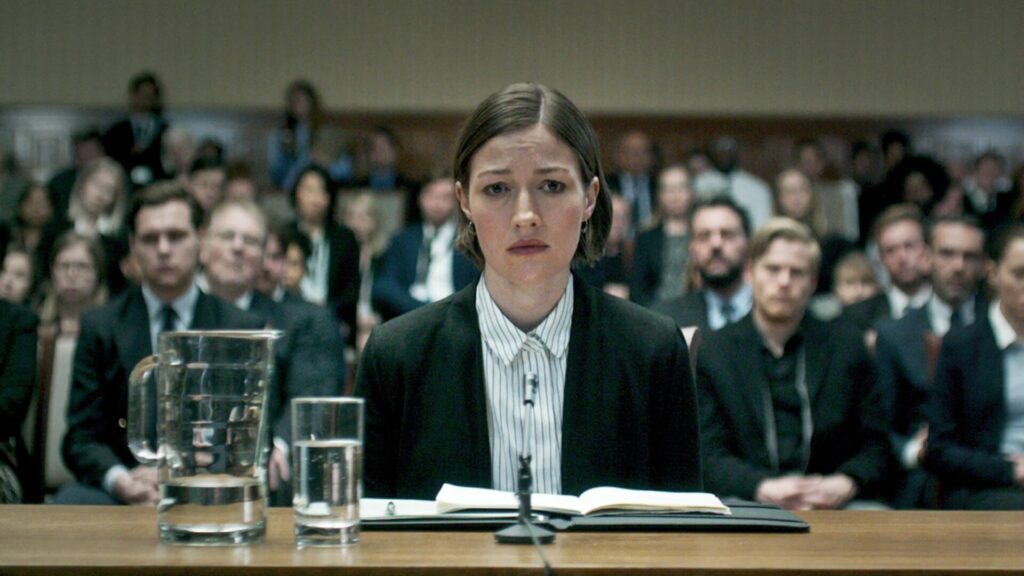
Synopsis:
In a world where social media outrage can lead to deadly consequences, detectives investigate mysterious deaths linked to social media hashtags.
Ranking:
3/6 in Season 3
Why:
“Hated in the Nation” is a detective thriller combining crime drama and science fiction elements. It’s a commentary on social media outrage and mob mentality. The episode is engaging and has a grand scale, making it one of the more substantial entries in Season 3.
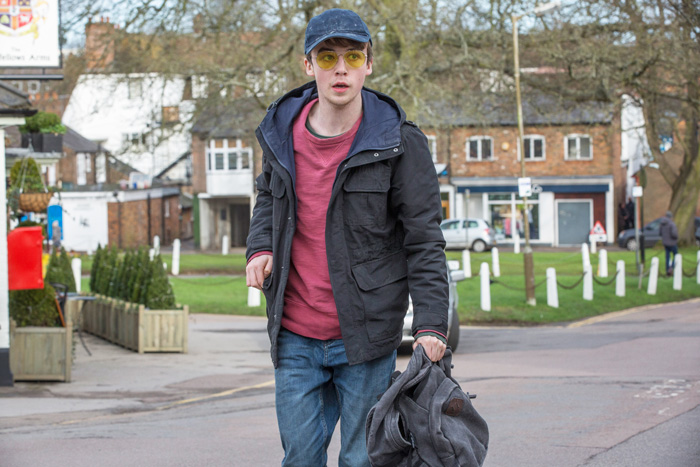
Synopsis:
A teenager is blackmailed into committing criminal acts by a mysterious hacker with access to his laptop camera.
Ranking:
4/6 in Season 3
Why:
“Shut Up and Dance” is a tense and disturbing episode that explores the dark side of the internet and privacy invasion. The episode’s grim tone and shocking ending make it memorable, but it’s ranked lower due to its bleakness.
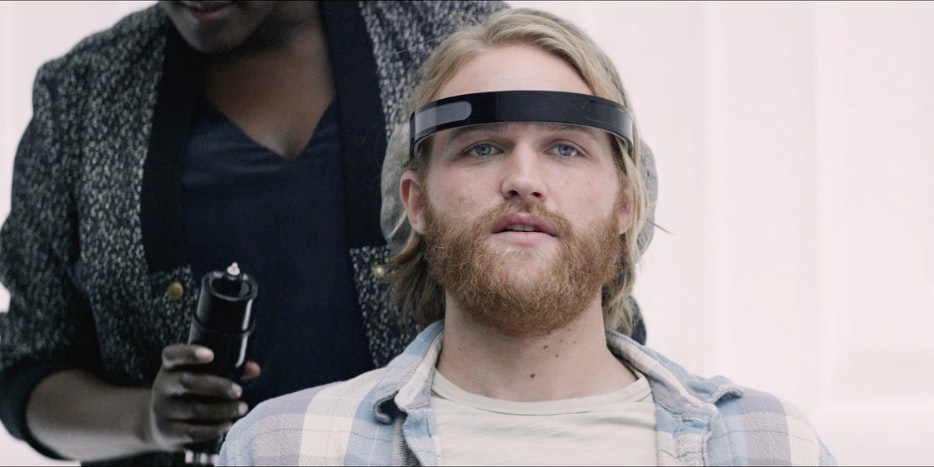
Synopsis:
A traveller named Cooper takes part in a playtest of an augmented reality game, but as the line between the game and reality blurs, he finds himself fighting to survive.
Ranking:
5/6 in Season 3
Why:
“Playtest” is a horror-themed episode that delves into the potential dangers of augmented reality and gaming. While it’s thrilling and has some genuine scares, it’s ranked lower due to its less impactful social commentary than other episodes in the season.
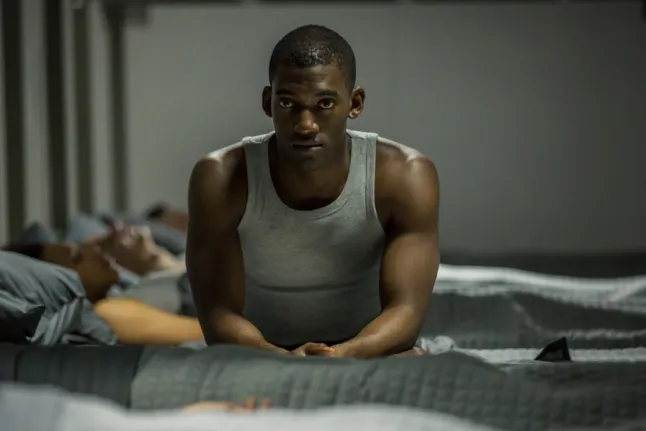
Synopsis:
In a post-apocalyptic future, a soldier named Stripe is tasked with eradicating mutated humans known as “roaches.” However, he begins to question the nature of his mission.
Ranking:
6/6 in Season 3
Why:
“Men Against Fire” explores the dehumanisation of enemies in war and the use of technology in military conditioning. While it has a thought-provoking premise, it’s often considered one of the less memorable episodes of the series.
Season 3 of Black Mirror is packed with diverse stories that delve into various aspects of technology and society. From the emotional and hopeful “San Junipero” to the tense and disturbing “Shut Up and Dance,” this season showcases the series’ ability to tackle various themes and genres. “Nosedive” and “Hated in the Nation” are particularly relevant in today’s social media-driven world, while “Playtest” and “Men Against Fire” explore the darker sides of gaming and warfare.
With its increased episode count and a move to Netflix, Season 3 of Black Mirror explored more varied and ambitious storytelling, making it a favourite among many series fans.
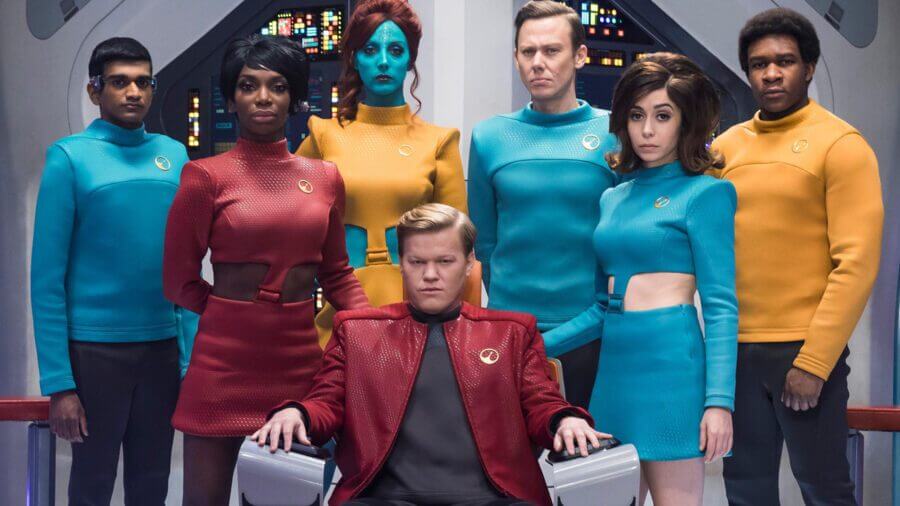
Synopsis:
Robert Daly, a brilliant but underappreciated programmer, creates a virtual reality game based on his favourite space TV show. However, he populates the game with sentient digital clones of his co-workers, ruling over them as a tyrant.
Ranking:
1/6 in Season 4
Why:
“USS Callister” is a thrilling and darkly comedic episode that combines space adventure with twisted reality. It explores themes of power, control, and virtual reality. The episode is visually stunning, and Jesse Plemons delivers a standout performance.

Synopsis:
In a world with a dating system that dictates the length of relationships, Amy and Frank are matched for a short period but feel a genuine connection. They must navigate the system’s rules to find each other again.
Ranking:
2/6 in Season 4
Why:
“Hang the DJ” is a heartwarming and clever episode that explores love and relationships in a controlled society. It’s often compared to “San Junipero” for its more optimistic tone and is praised for its charming characters and satisfying conclusion.

Synopsis:
A traveller visits the Black Museum, where the proprietor shows her a series of exhibits, each with a dark and twisted backstory involving different technologies.
Ranking:
3/6 in Season 4
Why:
“Black Museum” is an anthology containing multiple stories exploring the dark side of technological innovation. It’s a gripping and twisted episode that effectively ties together various themes from the Black Mirror series.

Synopsis:
In a post-apocalyptic world, robotic dogs relentlessly pursue a woman after a scavenging mission goes awry.
Ranking:
4/6 in Season 4
Why:
“Metalhead” is a tense and minimalist survival thriller shot in black and white. While it’s praised for its suspense and visual style, it’s ranked lower due to its lack of a deeper narrative than other episodes.

Synopsis:
After nearly losing her daughter, a mother uses an experimental technology called Arkangel to monitor her daughter’s every move. As her daughter grows up, the consequences of this surveillance become increasingly dire.
Ranking:
5/6 in Season 4
Why:
“Arkangel” explores the implications of parental control and surveillance. While the premise is intriguing, the episode is often criticised for its predictable plot and lack of depth compared to other episodes in the season.
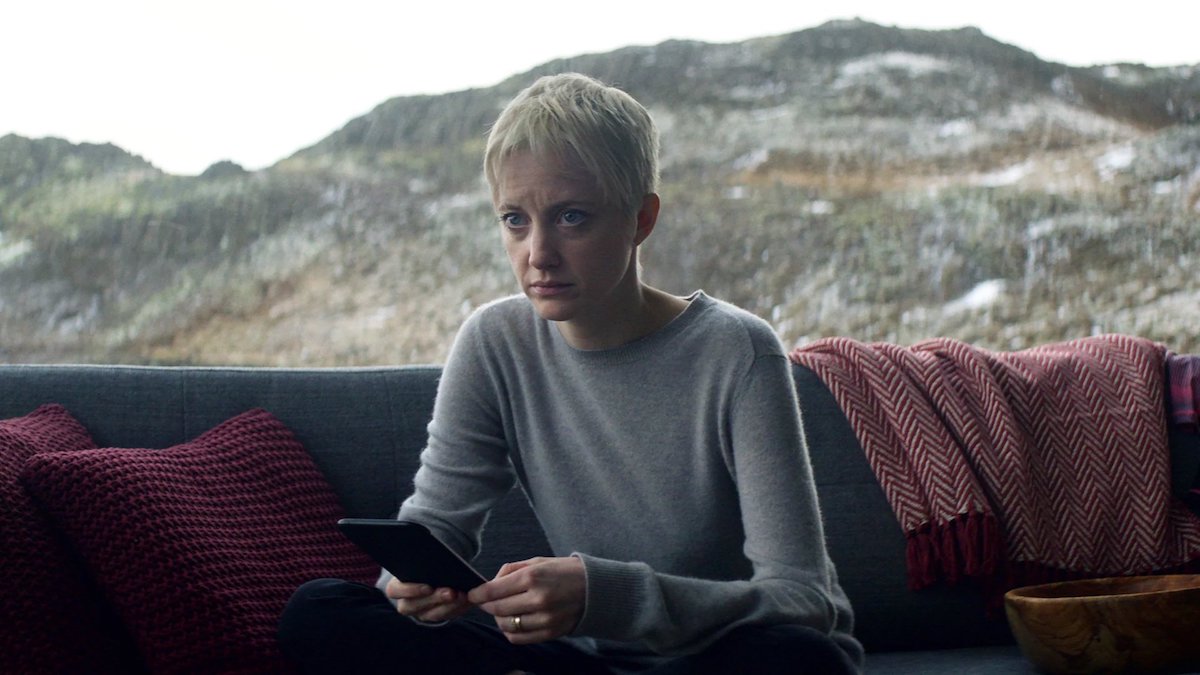
Synopsis:
Mia, a successful architect, has her past come back to haunt her. As she goes to great lengths to keep a secret, she becomes entangled with a technology that can access people’s memories.
Ranking:
6/6 in Season 4
Why:
“Crocodile” is a visually striking episode with a bleak and violent narrative. While the cinematography is praised, the story is often considered too dark, and the characters lack relatability, making it the lowest-ranked episode of Season 4.
Season 4 of Black Mirror is known for its ambitious storytelling and visual flair. With episodes like “USS Callister” and “Hang the DJ,” it continues to showcase the series’ range in both tone and genre. “Black Museum” is a kind of homage to the series as a whole, while “Metalhead” experiments with a more stripped-down style.
As we move forward, the series continues to evolve and experiment with new concepts and storytelling techniques. Up next, we’ll be delving into Season 5, where Black Mirror takes on pop stardom, virtual reality gaming, and social media scandals. Stay tuned!
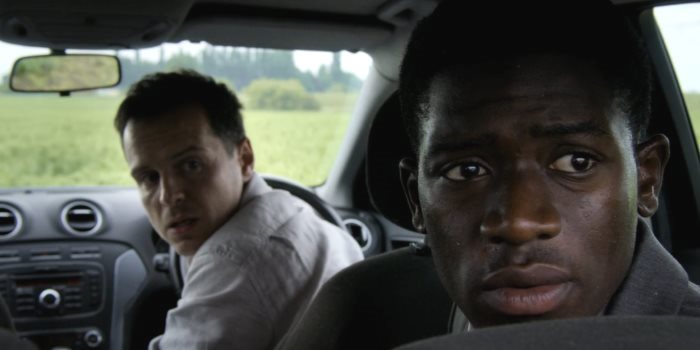
Synopsis:
A rideshare driver named Chris, haunted by a personal tragedy, kidnaps an employee of a social media company called Smithereen. His actions lead to a tense standoff as he demands to speak with the company’s CEO.
Ranking:
1/3 in Season 5
Why:
“Smithereens” is a tense thriller that critiques social media addiction and corporate indifference. Andrew Scott’s performance as Chris is widely acclaimed, and the episode’s tight pacing and emotional climax make it the standout of Season 5.

Synopsis:
Two old college friends, Danny and Karl, reunite and start playing a virtual reality fighting game called Striking Vipers. However, their relationship takes an unexpected turn within the game, affecting their lives outside of it.
Ranking:
2/3 in Season 5
Why:
“Striking Vipers” explores themes of virtual reality, identity, and relationships. The episode is praised for its emotional depth and the performances of Anthony Mackie and Yahya Abdul-Mateen II. It raises interesting questions about the nature of relationships in the digital age.
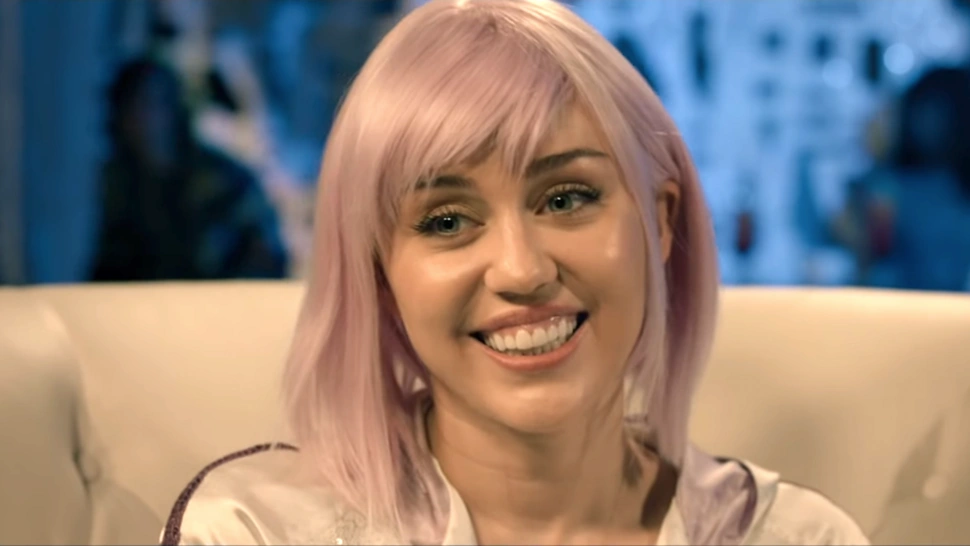
Synopsis:
A lonely teenager named Rachel becomes obsessed with a pop star, Ashley O, and her AI-powered doll, Ashley Too. When Ashley O’s life turns dark, Rachel and her sister Jack are involved in a plot to save her.
Ranking:
3/3 in Season 5
Why:
“Rachel, Jack and Ashley Too” is a mix of dark comedy and sci-fi that explores themes of pop stardom, fandom, and exploitation in the music industry. While Miley Cyrus’s performance as Ashley O is praised, the episode is often criticised for its tonal inconsistency and less impactful narrative compared to other Black Mirror episodes.
Season 5 of Black Mirror continues the series’ tradition of exploring the dark side of technology and its impact on society. While shorter, the season covers a range of themes from virtual reality and social media to pop culture and artificial intelligence.
With its thought-provoking stories and compelling characters, Season 5 adds to the rich tapestry of the Black Mirror universe.
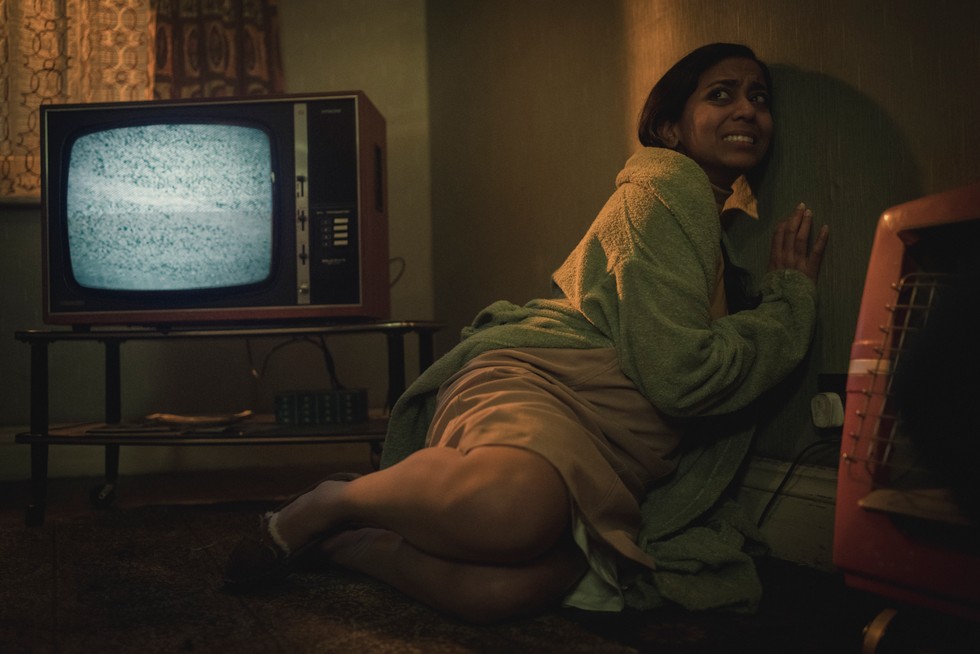
Synopsis:
A human-demon duo is tasked with killing three people to prevent the apocalypse. This fantasy horror episode is filled with violence, politics, humour, and clever storytelling.
Ranking:
1/5 in Season 6
Why:
“Demon 79” is a refreshing and ambitious episode that takes Black Mirror in a new direction. Initially intended for a companion show called Red Mirror, this episode retains the spirit of Black Mirror while venturing into fantasy horror. The performances by Anjana Vasan and Paapa Essiedu are exceptional, and the episode is a thrilling watch.
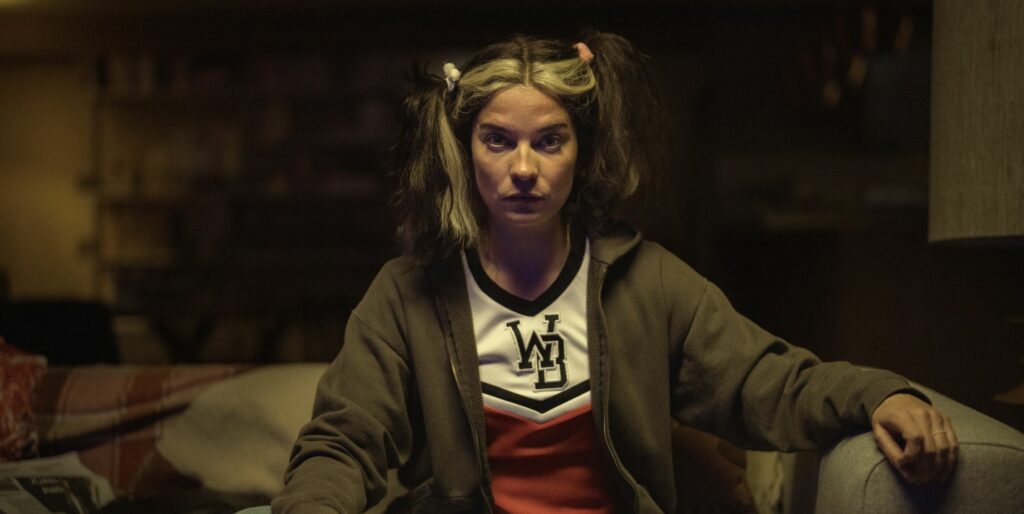
Synopsis:
Joan discovers that Netflix Streamberry has created a TV show about her life using the data it collected on her. The episode explores the implications of data privacy and the impact of media on personal identity.
Ranking:
2/5 in Season 6
Why:
“Joan Is Awful” cleverly uses the real-world evolution of technology to its advantage. The concept is quintessentially Black Mirror, and the performances by Annie Murphy and Salma Hayek Pinault add depth to this engaging story. The episode is both entertaining and thought-provoking, with a surprisingly empowering conclusion.
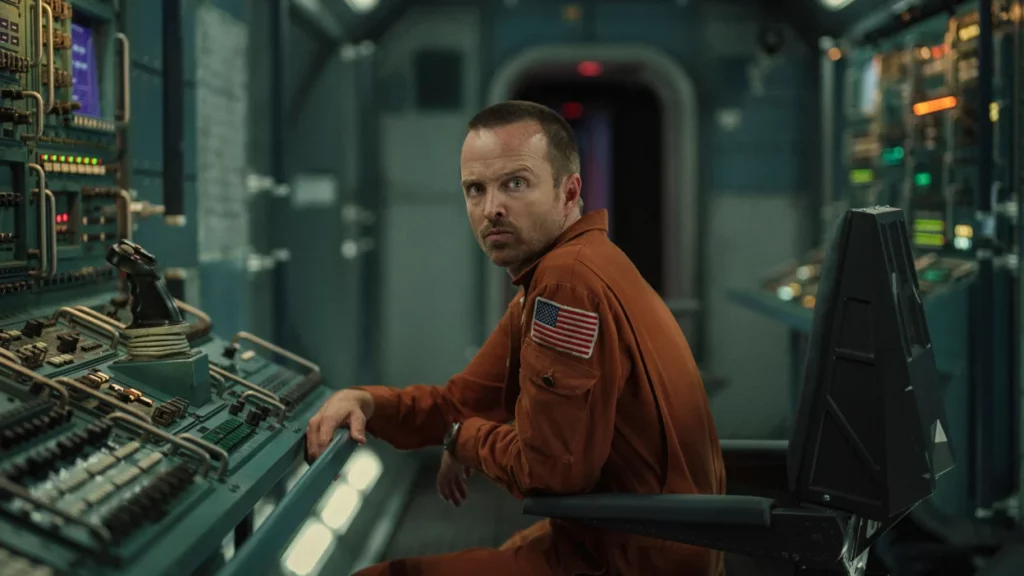
Synopsis:
Set in the 1960s space age, this episode follows the sci-fi concept with leads Josh Hartnett, Aaron Paul, and Kate Mara. The story takes an unexpected turn towards the end.
Ranking:
3/5 in Season 6
Why:
“Beyond the Sea” is visually stunning and well-acted. It brings Black Mirror’s sci-fi elements to the 1960s, an exciting twist. However, the ending is divisive and may only resonate with some viewers.

Synopsis:
Young filmmakers Davis and Pia travel to Scotland to film a documentary. When Pia discovers a chilling double murder case that Davis’s cop father investigated, they decide to change their focus.
Ranking:
4/5 in Season 6
Why: “Loch Henry” is Black Mirror’s take on the true crime genre. It’s an engaging crime saga that critiques society’s fascination with true crime. The episode is dark and intense, with a devastating ending that leaves a lasting impact.
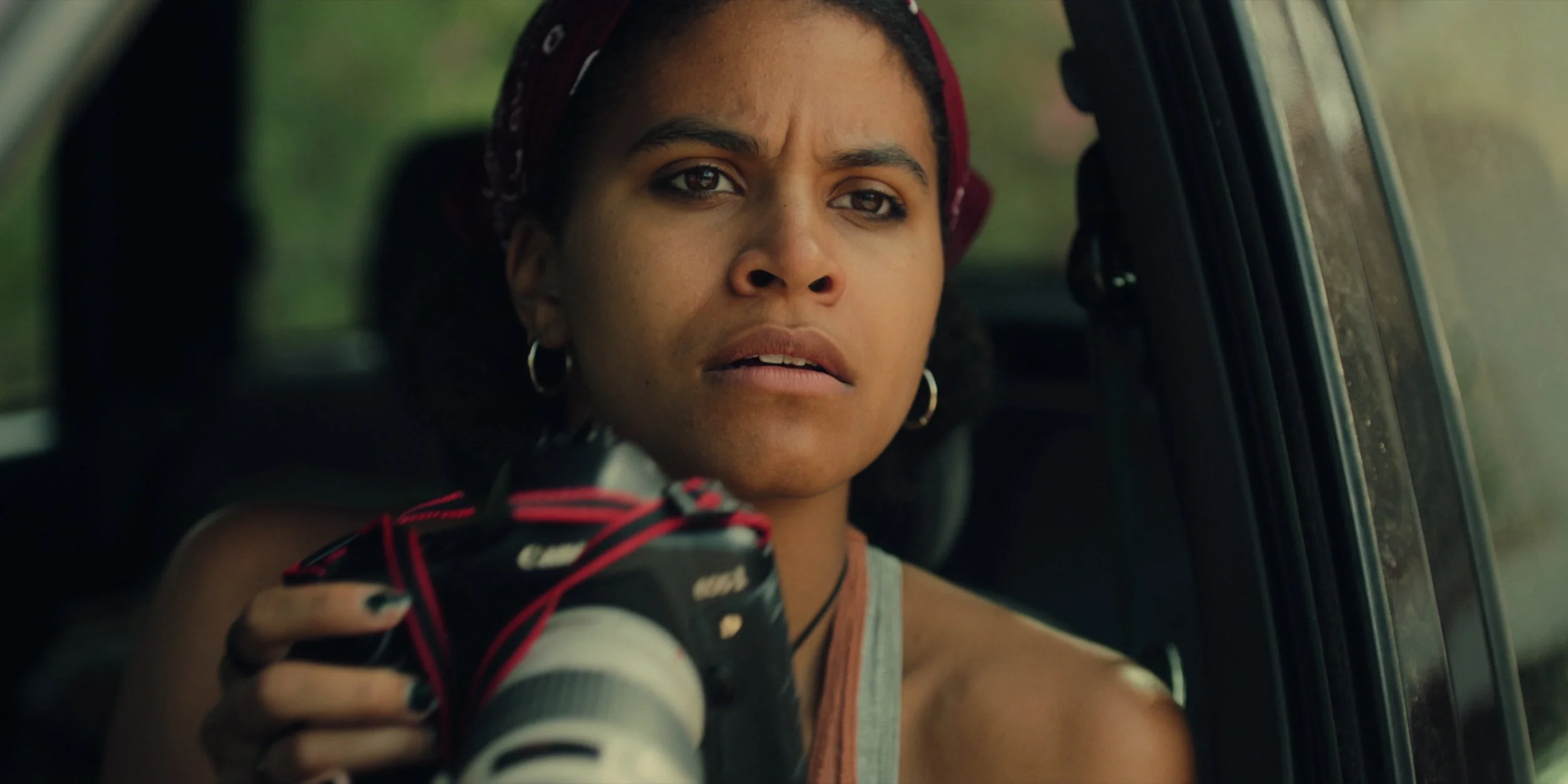
Synopsis: This episode follows a troubled actress and the paparazzi eager to capitalise on her downfall. The story takes an unexpected direction for the anthology series.
Ranking:
5/5 in Season 6
Why:
“Mazey Day” is an enjoyable watch, but it doesn’t quite reach the heights of other Black Mirror episodes. While the direction is interesting, the episode has less impact than others in the series.
Season 6 of Black Mirror continues to push the boundaries with its storytelling, experimenting with new genres and themes. From the data-driven reality of “Joan Is Awful” to the fantasy horror of “Demon 79,” this season offers diverse stories that keep viewers engaged and thinking.
Now that we’ve gone through all the seasons let’s take a moment to highlight the crème de la crème, the episodes that truly stand out in the Black Mirror anthology. These episodes are not just entertaining but are also thought-provoking and emotionally resonant. Here are the top 5 Black Mirror episodes of all time:
Synopsis:
In a seaside town in 1987, a shy young woman and an outgoing party girl strike up a powerful bond that seems to defy the laws of space and time.
Why It’s Number 1:
“San Junipero” departs from the usual dark themes of Black Mirror. It’s a beautifully crafted love story that explores themes of life, death, and what it means to be human. The 80s setting, the chemistry between the leads, and the emotional depth make this episode a fan favourite.
Synopsis:
A woman wakes up with no memory in a strange place where a sadistic transmitter controls everyone. She must join a group of misfits to take it down.
Why It’s Number 2:
“White Bear” is a roller-coaster of emotions with a shocking twist. It’s a commentary on justice, desensitisation, and the voyeuristic nature of society. The intense, thought-provoking episode stays with you long after it ends.
Synopsis:
Set in the 1960s space age, this episode follows the sci-fi concept with leads Josh Hartnett, Aaron Paul, and Kate Mara. The story takes an unexpected turn towards the end.
Why It’s Number 3:
“Beyond the Sea” is visually stunning and well-acted. It brings Black Mirror’s sci-fi elements to the 1960s, an exciting twist. The ending is divisive but adds to the episode’s depth and complexity.
Synopsis:
In a world where people earn currency by pedalling exercise bikes, one man rebels against the system.
Why It’s Number 4:
“Fifteen Million Merits” is a poignant critique of consumer culture and the entertainment industry. It’s visually striking and features a powerful performance by Daniel Kaluuya. The episode’s ending is both heartbreaking and thought-provoking.
Synopsis:
A human-demon duo is tasked with killing three people to prevent the apocalypse. This fantasy horror episode is filled with violence, politics, humour, and clever storytelling.
Why It’s Number 5:
“Demon 79” is a refreshing and ambitious episode that takes Black Mirror in a new direction. The performances by Anjana Vasan and Paapa Essiedu are exceptional, and the episode is a thrilling watch that operates as a much-needed reset and fresh beginning for the franchise overall.
These episodes represent the best of what Black Mirror has to offer. They challenge our perceptions, tug at our heartstrings, and leave us pondering the complexities of our modern world. These episodes are a great place to start if you’re new to Black Mirror. If you’re a long-time fan, they’re always worth revisiting.
Before we wrap up, let’s take a moment to acknowledge a special Black Mirror episode that deserves an honourable mention for its groundbreaking storytelling format.
Synopsis:
In this interactive film, a young programmer named Stefan adapts a choose-your-own-adventure book into a video game. As he delves deeper into the project, the lines between reality and fiction blur, and Stefan starts questioning his own free will.
Why It’s Notable:
“Bandersnatch” is Black Mirror’s first interactive film and represents a significant innovation in storytelling. It allows viewers to make choices on behalf of the main character, affecting the direction and outcome of the story. With multiple endings and a meta-narrative that ties into the themes of Black Mirror, “Bandersnatch” is a unique and ambitious addition to the series.
This wraps up our ranking of every Black Mirror episode. Whether you’re a long-time fan or new to the series, Black Mirror offers a diverse range of stories that explore the complex relationship between technology, society, and the human condition. So, grab some popcorn, dim the lights, and dive into the twisted world of Black Mirror on Netflix. Happy watching!
Black Mirror is more than just a sci-fi anthology series; it’s a mirror reflecting the intricacies and dilemmas of our society. Through its dark and often dystopian stories, the show challenges us to examine the role of technology in our lives.
One of the recurring themes in Black Mirror is the double-edged nature of technology. While technological advancements have undoubtedly improved our lives in many ways, Black Mirror shows us the potential dark side. From the obsession with social media in “Nosedive” to the ethical questions surrounding digital consciousness in “White Christmas,” the series doesn’t shy away from showing how technology can be a tool for both liberation and oppression.
At its core, Black Mirror is about the human condition. Technology is often a backdrop to explore deeper human emotions and desires. Episodes like “San Junipero” and “Hang the DJ” delve into love and relationships, while “Fifteen Million Merits” and “USS Callister” explore the desire for freedom and autonomy.
Black Mirror is also a sharp social commentary. It critiques various aspects of society, from the entertainment industry to the criminal justice system. The show often exaggerates current societal trends to a dystopian extreme, forcing us to question our path.
The series excels at presenting ethical dilemmas that don’t have easy answers. It challenges our moral compass, asking questions like, “What does it mean to be human?” and “What are the ethical implications of creating sentient digital beings?”
Black Mirror is a thought-provoking and often disturbing anthology series that holds a mirror up to society. Its dark tales force us to confront the uncomfortable realities and ethical dilemmas arising from our ever-evolving relationship with technology.
As we advance technologically, Black Mirror is a cautionary reminder of the potential consequences. It encourages us to be mindful and critical of the technologies we embrace and the society we build.
Whether you watch Black Mirror for its thrilling stories, its social commentary, or its exploration of the human condition, it’s a show that leaves a lasting impact. It challenges, scares us, and sometimes even moves us, but it makes us think.
So, as you navigate the maze of Black Mirror episodes, remember that each story is a piece of a giant puzzle, reflecting the complex tapestry of our society. It’s a journey that is sometimes terrifying but always worth taking.
Thank you for joining us on this deep dive into Black Mirror. Until next time, keep questioning, keep exploring, and keep watching.
Join our newsletter
© 2025 Merch Mates. All rights reserved.